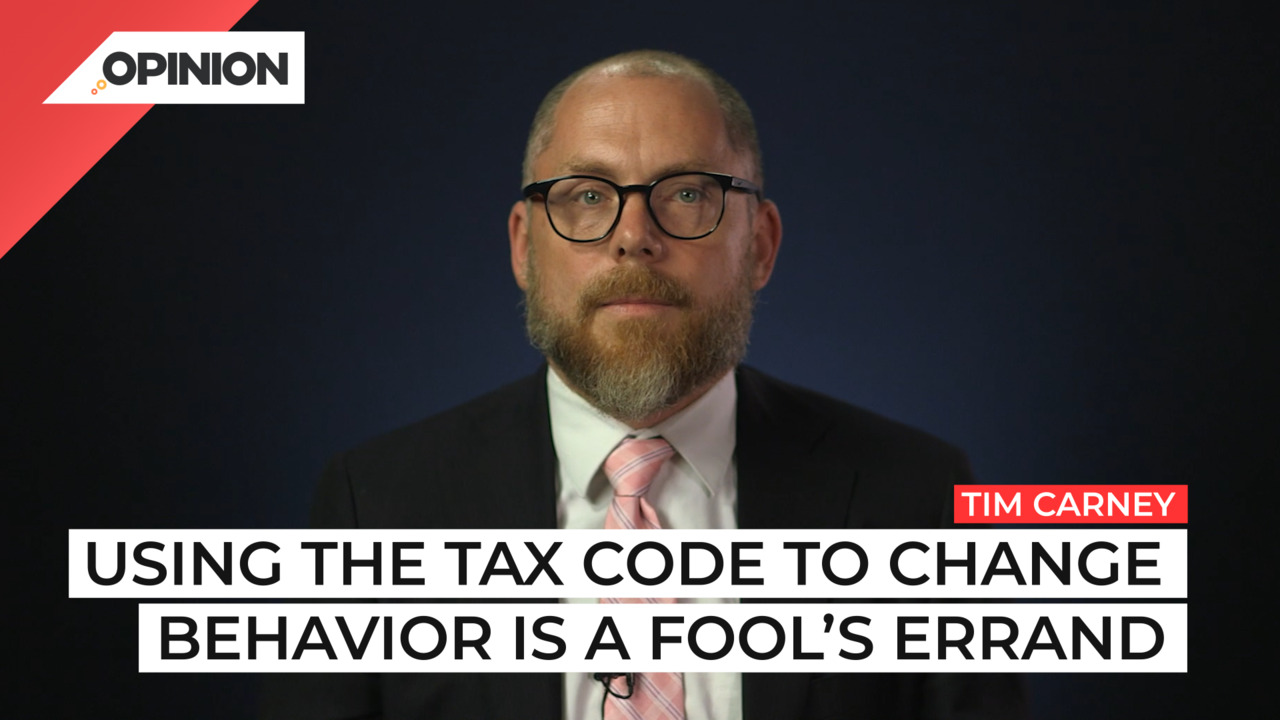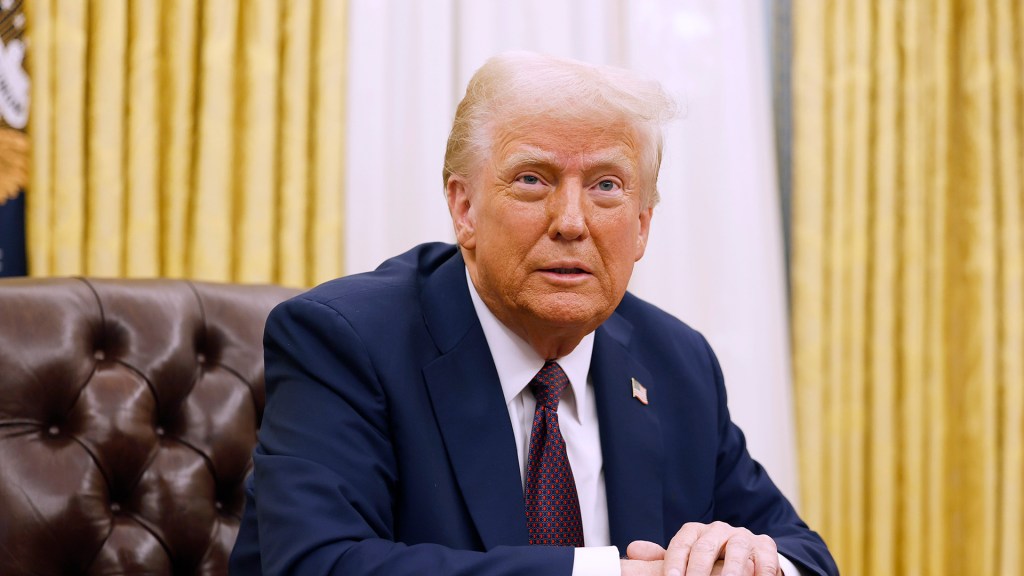
Commentary
-
Our commentary partners will help you reach your own conclusions on complex topics.
Taxes. You may see them as the way government generates revenue. But politicians have a grander vision of taxes. They see the tax code as a way to change how you and I behave. They create alcohol taxes to discourage drinking. Tariffs to push us towards more American made goods and green tax credits to get us to buy the stuff they think will help the environment.
But human behavior and capitalism are complicated. They are beyond the understanding of our tax writers. And so the best laid plans often go awry. The result? Unintended consequences and ever increasing complexity.
One recent example is the electric vehicle tax credit. In an effort to decrease gasoline usage, Congress in 2008 created a $7,500 tax credit for anyone who buys a plug-in electric vehicle.
The unintended consequences were plenty. For starters, the average Tesla buyer is not exactly middle class, which meant this was mostly a subsidy for the very wealthy.
Also, driving up demand for electric vehicles creates all sorts of environmental consequences. Deep sea mining is the most efficient way to find the materials needed for electric vehicles batteries. It also threatens to have massive costs on the ecosystems way down there.
What’s more, key parts of the electric vehicle supply chain were based overseas, including in China, meaning these tax credits were subsidizing Chinese companies.
Finally, subsidizing the purchase of a Tesla allows Tesla to charge more. So some of the tax credit was passed through to profit a company owned by the world’s richest man.
To mitigate exactly this problem, and to prod all carmakers towards plug-in vehicles, Congress had specified that only the first 200,000 buyers from each automaker could get the tax credit.
As a result, cars from Tesla and GM were no longer eligible for the tax credit by the time Joe Biden took office.
Hoping to phase out the internal combustion engine altogether, Democrats this year stuck a new electric vehicle tax credit into the poorly named Inflation Reduction Act.
This time around, Congress was determined to avoid some of the harms of the last tax credit. So they set income limits on taxpayers who could claim the credit, they set cost limits on cars eligible for the credit. They set Made in America rules and union labor rules.
The result is a very complicated tax credit, which doesn’t even apply to most electric cars sold in the U.S.
A tax incentive that confuses the average taxpayer will not be much of an incentive at all. The cost of complying with a complicated tax law will fall on the IRS, car dealers and car buyers, thus adding deadweight loss to the economy.
And there’s no reason to believe Congress has eliminated all the harmful unintended consequences. What will be the harms of this new lobby? Who knows?
You see part of what makes government meddling in the economy so dangerous is the unpredictability of these distortions. But we can guess.
Look at California, which is trying to abolish the gasoline car. Their electric grid is overwhelmed and the government is telling people to curb their electric usage.
If you’ve already swapped out gasoline for electricity for your car’s fuel, it’s pretty hard to conserve electricity.
Other consequences of this tax credit, we’ll find out when they happen. The lesson here isn’t that electric cars are bad. It’s that using the tax code to change behavior is a fool’s errand.
-
Anti-deportation protests across US will hurt immigrants
On Feb. 2, thousands of protesters waving Mexican, Guatemalan and Salvadoran flags marched through downtown Los Angeles, shutting down the freeway in protest of Trump’s deportation plans. In Phoenix, Arizona, protesters rallied at the state capitol and outside federal immigration offices. Similar grassroots demonstrations are unfolding across the country in the early weeks of Trump’s… -
How woke Democratic policies are fueling devastating wildfires
With at least 25 people killed and fires still burning in Los Angeles, some are accusing politicians of mismanaging resources and worsening the crisis. President-elect Donald Trump has blamed California Gov. Gavin Newsom, a Democrat, claiming he is responsible for a low water supply, although city officials rebuked that allegation and have clarified that the… -
Democrats, GOP must urgently cooperate to block Trump tariffs
Incoming U.S. President Donald Trump has pledged sweeping tariffs on U.S. imports from around the globe, including from U.S. neighbors and allies, but especially on Chinese goods. Trump contends that his tariffs, while initially shocking the U.S. and global economies, will ultimately be good for the long-term economic health of the United States. But economists… -
Why Democrats have soured on mail-in voting
Over 4 million Georgians voted early in the U.S. 2024 presidential election, including a significantly higher number of Republicans than in 2016 or 2020, and many of them chose to do so by mail. The Georgia secretary of state’s office said that this early voting was unprecedented, representing 56% of all registered Georgia voters and… -
Child car seat regulations might actually be impacting family planning
U.S. Sen. JD Vance, R-Ohio, claimed in March of 2023 that child car seats are prohibiting many American families from having more children. Critics noted that birth rates are declining all around the world — including in countries where families don’t normally own any car at all — and that the cost of raising a…
Latest Opinions
-
 Getty Images
Getty Images
Trump praises BlackRock for $19 billion Panama Canal investment
-
 Getty Images
Getty Images
President Trump announces arrest of Kabul airport bombing suspect
-
 Getty Images
Getty Images
Supreme Court requires Trump admin to pay $2B in frozen foreign aid
-
 Getty Images
Getty Images
US State Dept. reestablishes Houthis as ‘foreign terrorist organization’
-
 Getty Images
Getty Images
Reynolds Wrap maker must face lawsuit over ‘Made in USA’ label: Judge
Popular Opinions
-
In addition to the facts, we believe it’s vital to hear perspectives from all sides of the political spectrum.






